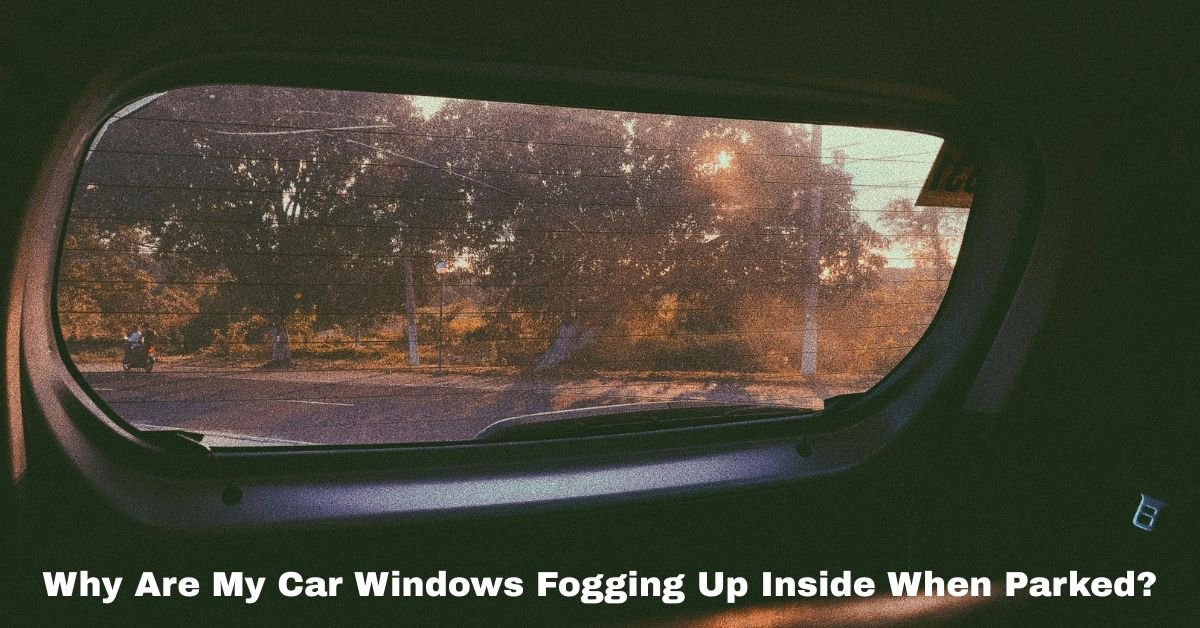Have you ever walked up to your car in the morning or after work, only to find the inside of the windows completely fogged up? It’s a frustrating and sometimes confusing issue, especially when the car hasn’t even been running. So why does this happen? Let’s dive into the reasons your car windows fog up from the inside when parked and what you can do about it.
Why Are My Car Windows Fogging Up Inside When Parked?
The Science Behind Foggy Windows
Fogging happens when moisture in the air condenses on a cooler surface—in this case, the inside of your car windows. When warm, moist air inside your vehicle meets the colder window glass, it turns into tiny water droplets that create that foggy or misty look.
Even though the car is off and parked, the air inside can still be warmer than the glass, especially during certain weather conditions. This is most common in colder months or during rainy seasons when the temperature and humidity levels are constantly changing.
Top Reasons for Interior Window Fogging
1. Excess Moisture Inside the Car
One of the most common causes of foggy windows is excess moisture inside your vehicle. This can come from:
- Wet floor mats or carpeting from rain or snow
- Damp clothes or gear left in the car
- Spilled drinks or liquids
- High humidity in the environment
Even something as small as breathing inside a closed car can add moisture to the air, especially if it’s parked overnight.
2. Blocked or Malfunctioning Ventilation
If your car’s ventilation system isn’t working properly, moisture can become trapped inside. Clogged cabin air filters, blocked vents, or a malfunctioning A/C or heater system can prevent the air from circulating and drying out the interior.
3. Leaky Seals or Weatherstripping
If you have a small leak in your car’s weatherstripping or window seals, rainwater or even morning dew can sneak into your vehicle. Over time, this moisture builds up and increases the chances of fogging, even when the car is off.
4. Temperature Changes
Rapid temperature changes between day and night can cause condensation. For example, a sunny day might warm the car’s interior, but as the sun sets and the temperature drops, the inside air holds more moisture than the cooler glass can handle, resulting in fog.
5. Poor Interior Air Circulation
When your car is parked for a long time, the air inside becomes stagnant. Without movement, the moisture doesn’t evaporate or escape, which makes condensation more likely when the temperature changes.
Must Read: What Would Cause A Car To Blow White Smoke?

How to Prevent Foggy Windows
Now that you know why it happens, here’s how to prevent it:
– Keep Your Interior Dry
Make it a habit to check for damp items in your car—umbrellas, snow-covered shoes, gym bags, etc. Shake off or dry these items before bringing them in. Consider using rubber floor mats, which are easier to dry and clean than fabric ones.
– Use a Dehumidifier or Moisture Absorber
There are small, inexpensive car dehumidifiers or moisture-absorbing bags you can leave inside your car. These products draw in excess moisture and can make a big difference, especially during winter or rainy months.
– Check Your Seals
Inspect your car’s window and door seals for cracks or wear. Replacing worn-out weatherstripping can prevent water from leaking in and keep the inside of your car dry.
– Leave a Window Slightly Open (When Safe)
If you’re parking in a secure and dry area, keeping a window slightly open can help air flow and minimize humidity inside the car. Even a small crack can help balance the interior and exterior air temperature.
– Clean Your Windows
Dirt, dust, and oil on your windows can actually attract moisture. Clean your windows regularly inside and out with an anti-fog window cleaner to help minimize condensation buildup.
Final Thoughts
Foggy windows can be more than just annoying—they can be a sign of deeper issues like leaks or ventilation problems. Fortunately, by understanding the causes and taking some preventative steps, you can keep your car windows clear and improve visibility, safety, and comfort.
Next time you see fogged-up windows inside your parked car, you’ll know exactly why it’s happening—and more importantly, how to stop it.
